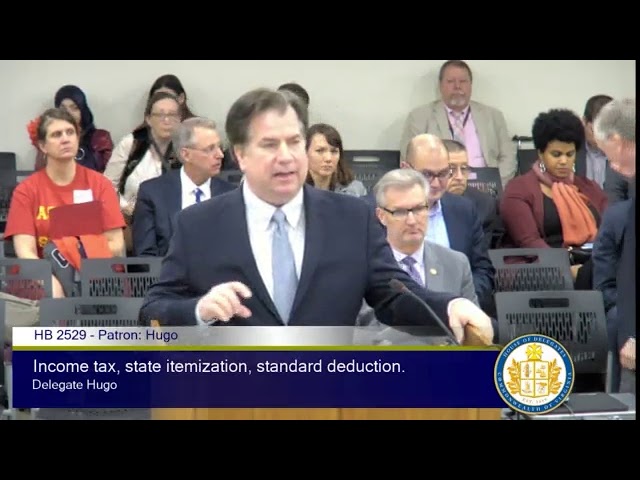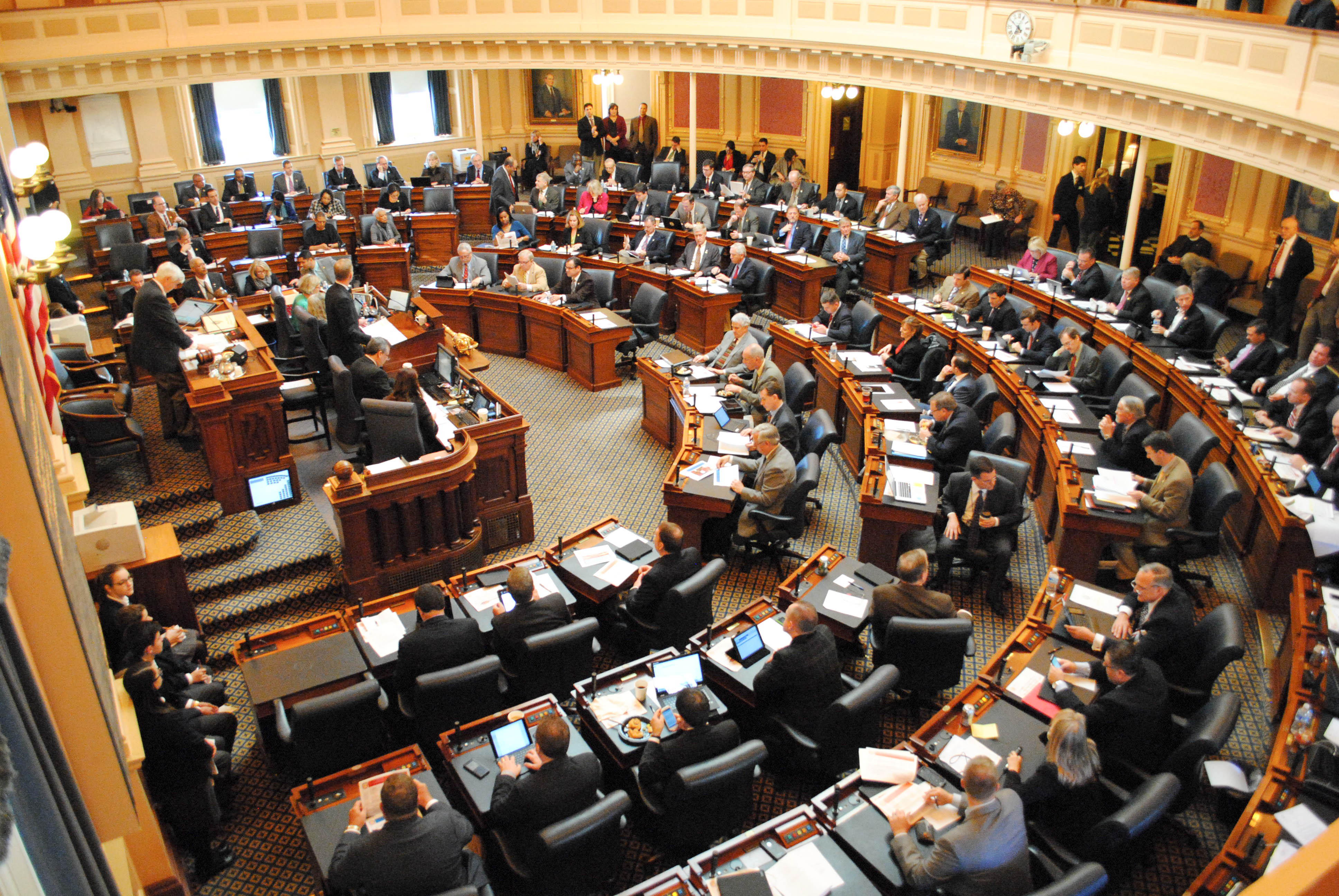Virginia’s middle class is one step closer to much-awaited tax relief.
This morning, Republicans in the House Finance Committee advanced a package of legislation aimed at easing the tax burden on the middle class, blocking Governor Ralph Northam’s planned tax hike, expanding itemization flexibility, and updating Virginia’s tax code to reflect changes in the 2017 federal tax reform law.
Last year, Governor Northam and his Democratic allies floated a tax increase to pay for his spending plan, announced earlier this year. Under Northam’s plan, state spending would increase by $2.2 billion, with $1.2 billion of that paid for through higher taxes on 600,000 middle class families. $1.6 billion of Northam’s proposed spending increases would occur after his term expires.
Republicans have said Northam’s tax increase is “dead on arrival.”
“Since last summer, we have been united against Governor Ralph Northam’s plan to pass on higher taxes in order to finance new state spending,” said Speaker Kirk Cox (R-Colonial Heights) in a press release.
“The House Finance Committee acted today to set aside all of the individual income tax revenue from the federal tax cuts to ensure that we provide tax relief to those affected by federal and state tax law changes.”
The legislative package would direct $950 million into a taxpayer relief fund providing assistance to those impacted by the changes.
HB2529, patroned by Delegate Tim Hugo (R-Clifton), allows taxpayers to itemize regardless of how they pay their federal taxes, increases the standard deduction from $3000 to $4000 for individuals, and from $6000 to $8000 for married couples. Under this legislation, additional revenues arising from economic growth and other sources would be directed towards the Commonwealth’s Tax Policy Fund, to be used for tax relief beginning in 2020.
Hugo’s bill advanced on a party line vote, with all Republicans voting in favor of tax relief and all Democrats backing Northam’s call for higher taxes.
“We will provide immediate tax relief to middle-class Virginians,” said Hugo, the chairman of the Republican Caucus. “Our plan will allow taxpayers to itemize their state taxes regardless of how they file their federal return, increase the state standard deduction across the board, and maintain the important state and local tax (SALT) deduction as it exists today. This protects a middle class family that itemizes from what could be roughly a $805 tax increase or providing an additional $115 in tax relief to a family that chooses the standard deduction.”
The legislation also leaves in place the current state and local property tax deduction (SALT), instead of capping it at $10,000, includes a number of technical corrections, removes a drafting error on mortgage interest deductions, and includes the “GILTI” subtraction to prevent a new tax on foreign income for businesses who locate in Virginia.
Republicans have said this tax relief would not cost the state “one penny” and would leave ample revenues available to fund teacher pay raises and other core government services.
The proposal would provide an immediate $575 million in tax relief for the next year, while still allowing for revenue growth. Current projections show the GOP-led effort will result in $37 million in more revenue in the next fiscal year.
Also advanced today was HB2355, introduced by Delegate Chris Jones (R-Suffolk), which advances Virginia’s tax conformity to December 31, 2019, while directing $952 million in revenue from the changes towards the taxpayer relief fund for next year. This provision would capture 100% of the limited-time tax relief made available through the Tax Cuts and Jobs Act (TCJA).
“Though we recognize that we must act on conformity, we are committed to providing tax relief to those impacted by the federal tax changes. My legislation puts all individual tax revenues from conformity in a ‘Taxpayer Relief Fund’ to ensure that it is not used for state spending,” said Jones, who chairs the House Appropriations Committee. “The House budget that will be released on Sunday will not spend one dime of the increased individual tax revenues from the Tax Cuts and Jobs Act and I am committed to providing tax relief for middle-class families.”
Finance committee chairman Lee Ware (R-Powhatan) urged the Commonwealth to act quickly, with the filing deadline approaching.
“With tax filing season upon us, it is important that we act quickly to move forward on conformity,” said Delegate Ware. “By setting aside all revenue from federal tax reform, as Chairman Jones’s bill does, we can ensure that the General Assembly has an opportunity to debate clearly what we should do with this money. Our plan would guarantee tax relief, while Governor Northam uses it to finance $2.2 billion in new state spending.”
Republicans have unified behind the plan, making tax relief and opposition to tax increases a priority for the legislative session.
The issue is proving to be a sharp dividing line between Republicans and Democrats as session rolls on. While the GOP has largely focused on the impacts of the bill for taxpayers, Democrats remain committed the governor’s talking points, denying that the additional $1.2 billion in revenue will be paid by the middle class.
Earlier this month, Democratic minority leader Eileen Filler-Corn wrongly stated that Northam’s proposal was not a tax hike.
“We also heard some incorrect information from the delegate from Fairfax, stating that Governor Northam’s proposal was a tax increase,” said Filler-Corn, in a floor speech to the House of Delegates, referencing Hugo’s legislation.
“There is no tax increase in the governor’s budget plan,” she continued.
Editorial boards have disagreed with her characterization, with the Richmond Times-Dispatch writing, “Gov. Northam’s tax plan wallops the middle class.”
Considering the example of a two-teacher married household, the Times-Dispatch noted, “Assuming a net income of about $80,000 for our two young educators, a back-of-the-envelope calculation of their state income tax liability suggests it would balloon by at least $700 under the Northam plan.”
While the future of the plan remains to be seen, as session continues, Republican legislators said they would continue to fight for tax relief and oppose the higher taxes proposed by Governor Northam.
Virginia’s regular legislative session is scheduled to continue through mid-February. GOP lawmakers said they hoped changes to tax policy would be made in time for filing session, however some lawmakers have hinted that a special session may be forthcoming, if legislators are unable to agree on changes before the General Assembly adjourns.





